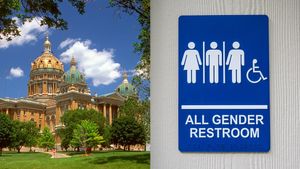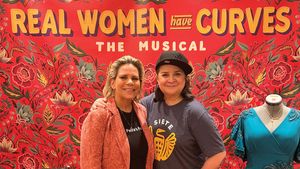At the United States Conference on AIDS, being held this week in New Orleans, Cynthia R. Pearson of the Indigenous Wellness Research Institute at the University of Washington discussed her study, The Sacred Journey: Young Native Women's Study, which was a multivariate examination of the sexual partnerships of Native American women.
The 129 women who participated in the study had a mean age of 24.5 years-old, only 74% were high school graduates, 49% are raising children and making $2,000 a month. Only 18% reported using condoms all the time.
The women cited the embarrassment of procuring condoms in tightknit communities where everyone knows each other. They study also reported that tribal leaders suggested that women in the community relied on the men to lead in this area and have a difficult time insisting on condom use with men who have “stronger personalities.”
Looking at the number of and characteristics of the women’s sexual partners during the previous 30 days, the researchers found something interesting. The study’s participants who had one sexual partner (as well as those with three partners) during that time period actually had low risk sex, and were more likely to use condoms with the first and third partner.
However, secondary partners had dramatically different characteristics from the first and third and the women in the study had higher risk behaviors with the second partners, being more likely to have consumed alcohol, more likely to have sex in a car or outdoor location, and less likely to use condoms. Those partners were less likely to be Native American/Alaskan Natives. They were more likely to have met the woman at a friend or family’s house and he is more likely to have been in jail and more likely to be concurrently partnered with another sex partner.
In fact, the differences between the second sex partners, was so dramatic that Pearson and the other researches applied for funding to investigate the disparity in more depth. They didn’t receive it.
The women in the study who had more than one sex partner had higher rates of HIV risk, substance abuse, and post-traumatic stress disorder from being previous victims of violence. They were more likely to use condoms with partners they met in risky venues versus safe places like a friend or family’s house. And throughout all the study, sex with partner number two turned out to be the most risky across the board.
The study also showed that those women who participated in high risk behaviors were less likely to be involved in their communities and less engaged in traditional pursuits like beading and drumming.
Because so many of the women who had high risk behavior were suffering from PTSD, the researchers pursued additional funding to transform cognitive processing therapy to something more culturally relevant to Native American lives.To reach that goal, they broke cognitive therapy down to its most fundamental elements and then recruited 70 community leaders who are helping rebuild the therapy from a Native perspective and incorporating traditional cultural beliefs.
The researchers are now training community counselors to employ the cognitive therapy and plan to have professional psychologists support the counselors by checking in via Skype on a regular basis. There's hope from everyone that this new process would help reduce the rate of new HIV infections among Native American and Alaska Native women. While Native Americans have lower HIV rates than African Americans and Latinos, they are statistically more likely to die from AIDS.









































































